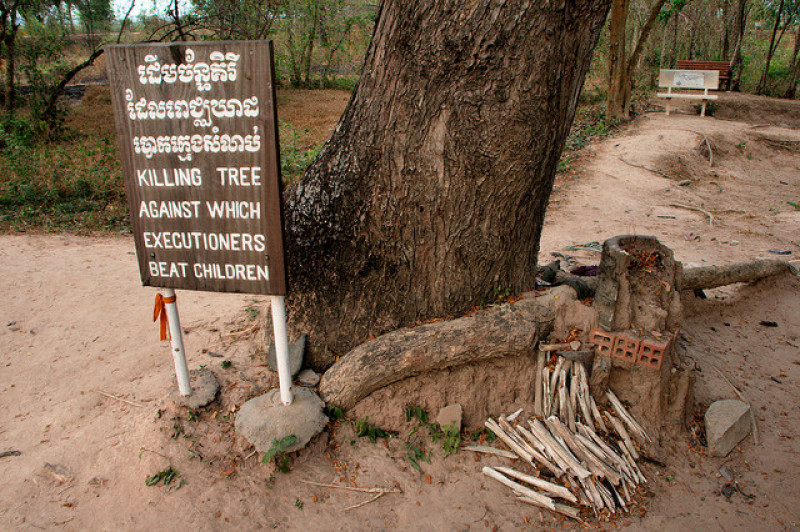

Two former senior leaders of the Khmer Rouge reign were found guilty on Thursday of crimes against humanity in Cambodia in the 1970s. Khieu Samphan, 83, and Nuon Chea, 88, were both sentenced to life in prison. Their lawyers said that both will appeal.
The court consisted of a joint United Nations and Cambodian tribunal. Nil Nonn, the chief judge, said that the Khmer Rouge carried out a "widespread and systematic attack against the civilian population of Cambodia," according to a New York Times report. Samphan was the head of the state at the time, while Chea was the chief lieutenant of Pol Pot, the leader of the Khmer Rouge.
The Khmer Rouge reign, which lasted from 1975 to 1979, saw one of the most devastating genocides in history, during which 1.7 million to 2 million Cambodians died. Khmer Rouge leaders killed any individuals they deemed to be a threat to their rule, killing religious individuals, intelligent scholars, specific ethnic groups, and anyone who disagreed with their methods of rule. After killing these people, their corpses were buried in mass graves called "killing fields," a term which was coined by a Cambodian journalist after his escape from the regime.
Almost 4,000 victims from the Khmer Rouge reign filed claims, according to the New York Times. One of them was Norng Chan Phal, who the Times report says was jailed as a young boy with his parents in the S-21 Tuol Sleng prison in Phnom Penh. His parents were tortured and executed. In Tuol Sleng prison alone, almost 20,000 people were killed, and Tuol Sleng was only one out of almost 150 prison camps during the time.
"We have been waiting for this verdict for more than 30 years," The Times quoted Phal. "After they die, their bodies should be kept in the prison cells."
Youk Chhang, the head of the Documentation Center of Cambodia, believed that the verdict of this trial may not please everyone, but "the verdict is important," Reuters reported him stating. He explained that the verdict brings closure to this broken past.
"We can close the darkest chapter of Cambodia's history. We can close it, and then we can move on."

















